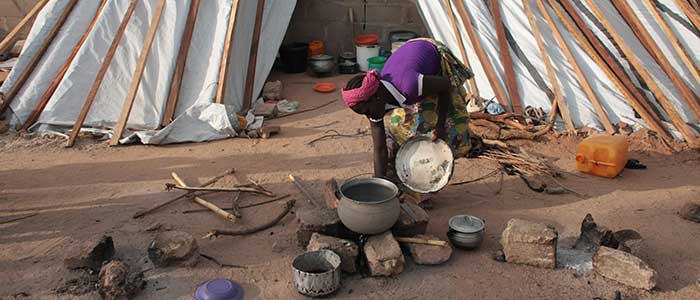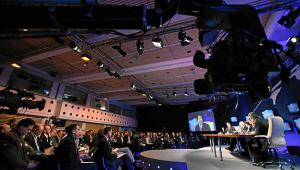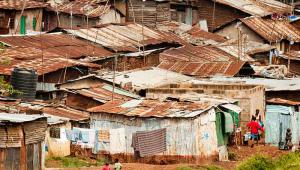refugee camp nigeria lake chad.jpg

A woman cooks in a Nigerian refugee camp
An Economy for the 1% shows that even as the international community talk about tackling inequality, and after the ratification of the Sustainable Development Goals in September, inequality is still rampant and rising.
The wealth of the poorest half of the world’s population has fallen by a trillion dollars since 2010 – or 41% – even as the global population increases. Meanwhile, the wealth of the richest 62 has increased by more than half a trillion dollars, to $1.76tr. Women are disproportionately affected, it said.
Winnie Byanyima, Oxfam International executive director, said it is “simply unacceptable” that the poorest half of the world’s population owns no more than a few dozen “super-rich people who could fit onto one bus”.
“World leaders’ concern about the escalating inequality crisis has so far not translated into concrete action – the world has become a much more unequal place and the trend is accelerating. We cannot continue to allow hundreds of millions of people to go hungry while resources that could be used to help them are sucked up by those at the top.”
She also called on governments, companies and elites to end the era of tax havens, which she said is fuelling economic inequality and preventing many from lifting themselves out of poverty.
“Multinational companies and wealthy elites are playing by different rules to everyone else, refusing to pay the taxes that society needs to function. The fact that 188 of 201 leading companies have a presence in at least one tax haven shows it is time to act,” she said.
Oxfam pointed out that nine out of ten World Economic Forum corporate partners have a presence in at least one tax haven and corporate investments in tax havens almost quadrupled between 2000 and 2014. Globally it is estimated that $7.6trn of individuals’ wealth sits offshore.
As much as 30% of all African financial wealth is estimated to be held elsewhere, costing an estimated $14bn in lost tax revenues annually, Oxfam said.
Following a string of high-profile revelations of tax avoidance by international corporations and wealthy individuals, the international community called for a clampdown on the measures used to legally get around the global tax system.
In 2015, G20 governments, via the OECD, agreed on overhauls to the international tax architecture aimed to ensure companies pay their taxes in countries where their profits are generated. However, while celebrated as a step forward, critics have noted the reforms do little to help developing countries.
Oxfam said other key trends behind rising inequality include the falling share of national income going to workers worldwide and a widening gap between pay at the top and bottom of the income scale.
By contrast, it added, the already wealthy have benefitted from a rate of return on capital that has been consistently higher than the rate of economic growth.
As a result, while the number of people living in extreme poverty halved between 1990 and 2010, the average annual income of the poorest 10% has risen by less than $3 per year in the past quarter of a century – amounting to less than a cent a day.
Had inequality not grown between 1990 and 2010, an extra 200 million people could have escaped poverty, Oxfam said.
The NGO called on governments around the world to take action against tax havens to recover the missing billions that should have been invested in vital public services and to ensure work pays for those at the bottom.
These actions will be vital if world leaders are to meet the goals for sustainable development agreed to at the UN last September.
“The richest can no longer pretend their wealth benefits everyone – their extreme wealth in fact shows an ailing global economy,” said Byanyima.
“The recent explosion in the wealth of the super-rich has come at the expense of the majority and particularly the poorest people.”
The report was produced to coincide with this year’s World Economic Forum, where business leaders and rich and powerful individuals descend on Davos, Switzerland. This year’s forum begins on 20 January.













